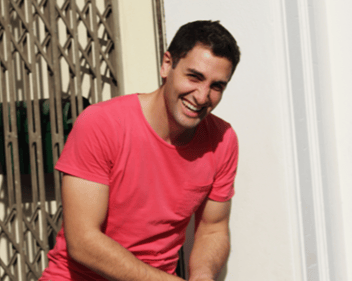Flash fiction is all about concision, fitting the intrigue, emotion and impact of a full-length...
With an extremely limited word count, flash fiction encourages writers to pack meaning and significance into every word they use, creating an impact that lingers long after the story has finished. “I always look for someone who can create emotional resonance in a brief space,” says Tara Lynn Masih, Guest Judge for our Flash Fiction Competition. “There are many clever flash stories out there, but personally, I find it's the ones that make you think or feel or learn beyond the final period that rise above the rest.”
Read to learn more about her career and her advice for writing a winning piece of flash fiction!
You’re a writer, but you’ve also been a teacher, editor, and worked in publishing. Tell us about the path you took to arrive where you are today.
Well, I was what we used to call a "bookworm." I read all the time. Loved books. Loved holding them, selecting them, reading late into the night with a flashlight under the covers. It was my grandmother who told me about the career of proofreading. When I learned you could get paid to read books, I was all in and had a career path at nine years old! Then, gradually, I began writing myself. As with most writers, I started getting published in small journals and from there it grew to having my own books published. If you look at all my books you'll notice certain themes running through them, with my career and personal background appearing in each: teaching tolerance, teaching writing, exploring history and place.
Flash fiction as a genre emerged in the 1900s, so it’s rather new. What does writing flash fiction allow you to do that you might not be able to do in longer forms?
I think flash fiction falls somewhere between poetry and long narrative prose. It borrows from both. It doesn't allow you to do a lot of world-building like you can in a novel, or to have multiple characters and complex plots. What it does allow you to do is experiment with compression and detail and limited word use, so that you're not following the stricter parameters of poetry but still trying to capture something brief (or expansive in brief moments).
In addition to flash fiction, you’ve written novels, poetry, and essays. How can writing in a very tight space make you a better writer in other genres?
Tight spaces and limits force you to pay more attention. And to learn what can be cut. I think the most accomplished literary writers, even when writing novels or essays, don't have anything in their works that is excess baggage or that weighs down the story and its impact.
When writing a 99-word story, it’s tempting to choose a subject that packs the biggest punch – something with big drama or shock value. But often it’s the more mundane storylines that grab the reader most effectively. What topics lend themselves to flash fiction?
If you mean what in a 99-word story often grabs the reader in a short period of time, I'd say it has more to do with your attitude toward the story than the subject itself. If you are not all that into what you are writing about, or it seems kind of boring to you, it will be boring to the reader. In that short space, write about something that really caught your eye or ear, or made a sudden impact in your life. Be excited about the story in some way, or be excited about the challenge of squeezing it into 99 words!
What are you looking for in a winning entry? Any tips for our young writers, especially those who are new to the genre?
I always look for someone who can create emotional resonance in a brief space. There are many clever flash stories out there, but personally, I find it's the ones that make you think or feel or learn beyond the final period that rise above the rest. As for tips, I gave one above, but I'd add to that: have fun, and stretch yourself and your vocabulary. I don't mean use big words, but try to make most of your sentences unique in some way. Use a new word, pay attention to something you might not normally write about, and draw on some of the 5 senses. Then go back and cut, cut, cut till you can't cut anything more.
About the Guest Judge: Tara Lynn Masih is editor of the acclaimed Rose Metal Press Field Guide to Writing Flash Fiction and Founding Series Editor of The Best Small Fictions. She’s been anthologized in, among other collections, Brevity & Echo, Flashed: Sudden Stories in Comics and Prose, Nothing Short of 100, and W.W. Norton’s New Micro. Her flash, featured in Fiction Writer’s Review for National Short Story Month, received Wigleaf Top 50 recognition, judged by Roxane Gay. Tara is a National Jewish Book Award Finalist for her multi-award-winning YA novel, My Real Name Is Hanna, and her second story collection, How We Disappear, was a MILLIONS Most Anticipated Book of 2022 and received a Florida Book Award. Always in love with books, she was called a "bookworm" when she was growing up, and she is very happy to be the author of her own now.


-jpg.jpeg?width=400&height=400&name=Sy%20Montgomery%20guest%20judge%20photo%20(1)-jpg.jpeg)



